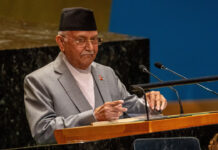Written by Lisa Murimi
Colombia, Jamaica, and Panamá have collaborated on a $42-million initiative to combat plastic pollution in urban and coastal areas.
This joint effort aims to promote circularity at the city level to address the detrimental impacts of plastic waste on human health and the environment.
Plastic pollution poses a significant challenge, with approximately one-third of plastic being single-use and a considerable amount ending up in ecosystems and oceans, exacerbating global crises such as climate change, biodiversity loss, and pollution.
Led by the United Nations Environment Programme (UNEP) and supported by the Global Environment Facility (GEF) and the Cartagena Convention Secretariat, the project seeks to implement closed-loop policies, engage the private sector, and create a network among Latin American and Caribbean cities to combat marine plastics and plastic pollution.
By adopting circular economy principles, including reducing unnecessary or toxic plastic products and implementing reuse and refill systems, the initiative aims to decrease plastic pollution and create new circular business models.
“Embracing circularity lies at the heart of our work in cities as a powerful weapon in the fight against plastic pollution.
By reimagining our approach to consumption and waste, we can safeguard our marine ecosystems, and empower others across Latin America and the Caribbean to do the same. Prevention is protection,” said Carlos Manuel Rodríguez, CEO and Chairperson of the GEF.
“We hope this project can serve as a model for upscaling and replication throughout the wider Caribbean Region, while encouraging the commitment by Governments – under the Cartagena Convention – to control, reduce and prevent marine pollution,” said Cartagena Convention Director Chris Corbin.
The project’s focus cities, including Barranquilla, Cartagena, Kingston, Montego Bay, Panamá City, and Colón, will work together over four years to align with international best practices and emphasize the 9Rs: “reduce, reuse, recycle,” while also promoting product and system redesign for reduced plastic use.
This effort not only addresses plastic pollution but also has the potential to generate economic benefits and job creation while safeguarding marine ecosystems.


















